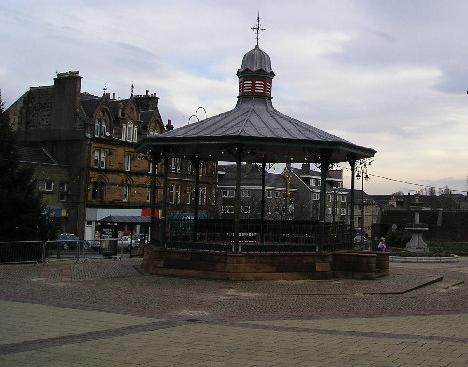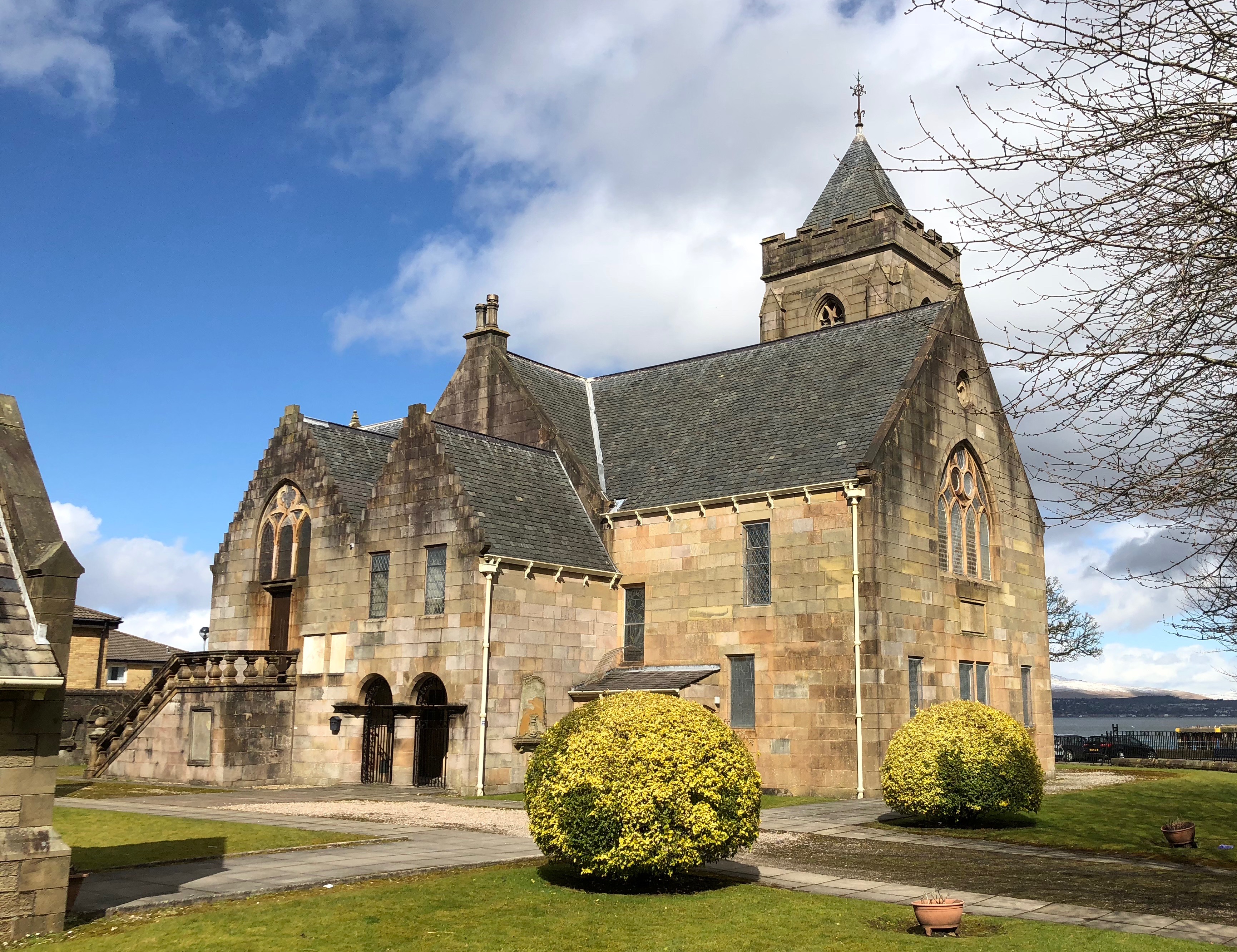|
1st Renfrewshire Rifle Volunteers F.C.
The 1st Renfrewshire Rifle Volunteers Football Club was a 19th-century association football club based in Greenock, Scotland. History The club was formed out of the 1st Renfrewshire Rifle Volunteers, a company in the Volunteer movement of the British Army. The Volunteers included sporting activities within their purview and newspapers often carried reports of such activities. The growth of football in Scotland, especially thanks to Queen's Park F.C., and the success of army teams in England such as the Royal Engineers A.F.C., encouraged regiments to form football clubs as part of the physical regimen. The 1st R.R.V. was formed in 1884 with 50 members and immediately joined the Scottish Football Association as a senior club. This entitled the Volunteers to enter the Scottish Cup The Scottish Football Association Challenge Cup, [...More Info...] [...Related Items...] OR: [Wikipedia] [Google] [Baidu] |
Association Football
Association football, more commonly known as football or soccer, is a team sport played between two teams of 11 players who primarily use their feet to propel the ball around a rectangular field called a pitch. The objective of the game is to score more goals than the opposition by moving the ball beyond the goal line into a rectangular framed goal defended by the opposing side. Traditionally, the game has been played over two 45 minute halves, for a total match time of 90 minutes. With an estimated 250 million players active in over 200 countries, it is considered the world's most popular sport. The game of association football is played in accordance with the Laws of the Game, a set of rules that has been in effect since 1863 with the International Football Association Board (IFAB) maintaining them since 1886. The game is played with a football that is in circumference. The two teams compete to get the ball into the other team's goal (between the posts and under t ... [...More Info...] [...Related Items...] OR: [Wikipedia] [Google] [Baidu] |
1888–89 Scottish Cup
The 1888–89 Scottish Cup was the 16th season of Scotland's most prestigious football knockout competition. 3rd Lanark RV beat Glasgow rivals Celtic (making their Cup début) 2–1 in a replayed final. The original match was won 3–0 by 3rd Lanark RV but the SFA ordered a replay due to the playing conditions. Calendar Teams All 166 teams entered the competition in the first round. First round Broughty, Broxburn, Glasgow University, Uddingston, Vale of Leven and 1st Renfrew RV received a bye to the second round. Matches Replays Second replay ;Notes Sources: Second round Armadale, Cambuslang Hibernian, Dumbarton, Dunblane, Glasgow University, Irvine and Kirkaldy Wanderers received a bye to the third round. Matches Replays Second replay Sources: Third round Dunfermline Athletic, Fair City Athletic, Methlan Park and Oban received a ... [...More Info...] [...Related Items...] OR: [Wikipedia] [Google] [Baidu] |
Association Football Clubs Established In 1884
Association may refer to: *Club (organization), an association of two or more people united by a common interest or goal *Trade association, an organization founded and funded by businesses that operate in a specific industry *Voluntary association, a body formed by individuals to accomplish a purpose, usually as volunteers Association in various fields of study * Association (archaeology), the close relationship between objects or contexts. * Association (astronomy), combined or co-added group of astronomical exposures *Association (chemistry) * Association (ecology), a type of ecological community *Genetic association, when one or more genotypes within a population co-occur * Association (object-oriented programming), defines a relationship between classes of objects *Association (psychology), a connection between two or more concepts in the mind or imagination * Association (statistics), a statistical relationship between two variables *File association, associates a file with ... [...More Info...] [...Related Items...] OR: [Wikipedia] [Google] [Baidu] |
Football In Inverclyde
Football is a family of team sports that involve, to varying degrees, Kick (football), kicking a Football (ball), ball to score a Goal (sport), goal. Unqualified, Football (word), the word ''football'' normally means the form of football that is the most popular where the word is used. Sports commonly called ''football'' include association football (known as ''soccer'' in North America and Australia); gridiron football (specifically American football or Canadian football); Australian rules football; rugby union and rugby league; and Gaelic football. These various forms of football share to varying extent common origins and are known as "football codes". There are a number of references to traditional, ancient, or prehistoric ball games played in many different parts of the world. Contemporary codes of football can be traced back to English public school football games, the codification of these games at English public schools during the 19th century. The expansion and cultur ... [...More Info...] [...Related Items...] OR: [Wikipedia] [Google] [Baidu] |
Defunct Football Clubs In Scotland
Defunct (no longer in use or active) may refer to: * ''Defunct'' (video game), 2014 * Zombie process or defunct process, in Unix-like operating systems See also * * :Former entities * End-of-life product An end-of-life product (EOL product) is a product at the end of the product lifecycle which prevents users from receiving updates, indicating that the product is at the end of its useful life (from the vendor's point of view). At this stage, a ... * Obsolescence {{Disambiguation ... [...More Info...] [...Related Items...] OR: [Wikipedia] [Google] [Baidu] |
Greenock Princes Pier Railway Station
Greenock Princes Pier was a railway station serving Greenock, Renfrewshire, Scotland, originally as part of the Greenock and Ayrshire Railway. It was approached by a tunnel sloping downhill under Greenock's west end, with railway sidings before the line crossed Brougham Street bridge over the main road to Gourock. The station was set on an embankment on the approach to Prince's Pier, with a line curving down to serve Albert Harbour. The area of the station, pier and the infilled Albert Harbour is now occupied by Greenock Ocean Terminal container port and cruise ship passenger terminal. History The station opened on 23 December 1869, as Greenock Albert Harbour. The station was set on an embankment, with an open path leading down to Prince's Pier. North British Railway through trains were advertised as running every week-day "between Edinburgh (Waverley and Haymarket Stations) and Greenock (Albert Harbour), carrying Passengers to and from Prince's Pier, Greenock, without change ... [...More Info...] [...Related Items...] OR: [Wikipedia] [Google] [Baidu] |
Arthurlie F
Arthurlie is an area of the town of Barrhead, East Renfrewshire, Scotland. History of Arthurlie The lands of Arthurlie were held in medieval times by the Stewart family, a branch of the noble Stewarts of Darnley. Later the lands became the property of Allan Pollock, Esq. and remained in his family for several generations before being inherited by Gavin Ralston of Woodside in Beith.Pride, David (1910). ''A History of the Parish of Neilston''. Pub. Alexander Gardner, Paisley. Facing p 137. The area has long been associated with the legends of King Arthur.Pride, David (1910). ''A History of the Parish of Neilston''. Pub. Alexander Gardner, Paisley. p 138. The name means 'Arthur's meadow.'Johnston, James B. (1903), ''Place-Names of Scotland.'' Pub. David Douglas, Edinburgh. P. 19. Arthurlie was a barony of considerable extent, however it eventually came to be purchased by Henry Dunlop Esq. in 1818 from Gavin Ralston, a distant relative. The Dunlop family ran Gateside Cotton Mill ... [...More Info...] [...Related Items...] OR: [Wikipedia] [Google] [Baidu] |
Kilbarchan F
Kilbarchan ( gd, Cill Bhearchain) is a village and civil parish in central Renfrewshire, in the west central Lowlands of Scotland. The village's name means "cell (chapel) of St. Barchan". It is known for its former weaving industry. History The village was once one of many weaving villages, and at one time there were 800 handlooms in the village. The weavers were active in the Radical movement which sought parliamentary reform, and Kilbarchan played a part in the agitation of the so-called Radical War of 1820. One cottage named the "Weavers Cottage" built in 1723 has been conserved by the National Trust for Scotland with weaving still in operation, and guides demonstrate handloom weaving to visitors. Kilbarchan was the birthplace of Mary Barbour, the Scottish political activist who led the Glasgow rent strike of 1915 and later became Glasgow's first woman councillor. Lilias Day The main annual event in the village calendar is the celebration of Lilias Day, on ... [...More Info...] [...Related Items...] OR: [Wikipedia] [Google] [Baidu] |
Johnstone Harp F
Johnstone ( sco, Johnstoun, gd, Baile Iain) is a town in the of Renfrewshire and larger historic county of the same name, in the west central Lowlands of |
Renfrewshire Cup
The Renfrewshire Cup was an annual association football competition between teams in the historic county of Renfrewshire in the west central Lowlands of Scotland. The final was generally a Renfrewshire derby contested between the two largest teams in the county, Paisley's St Mirren and Greenock side Morton.Renfrewshire Cup StMirren.info. Retrieved 16 February 2022 Tournament The tournament for the Renfrewshire Cup was contested between four teams from the county. St Mirren and Greenock Morton qualified automatically and each team competed with one of the finalist teams from a local amateur tournament, the Victoria Cup. The two victorious teams from these semi-finals went on to compete in the final game.History 1991 was the last year in which Morton or St Mirren lost to other opposition ...[...More Info...] [...Related Items...] OR: [Wikipedia] [Google] [Baidu] |
Greenock Morton F
Greenock (; sco, Greenock; gd, Grianaig, ) is a town and administrative centre in the Inverclyde council area in Scotland, United Kingdom and a former burgh within the historic county of Renfrewshire, located in the west central Lowlands of Scotland. It forms part of a contiguous urban area with Gourock to the west and Port Glasgow to the east. The 2011 UK Census showed that Greenock had a population of 44,248, a decrease from the 46,861 recorded in the 2001 UK Census. It lies on the south bank of the Clyde at the "Tail of the Bank" where the River Clyde deepens into the Firth of Clyde. History Name Place-name scholar William J. Watson wrote that "Greenock is well known in Gaelic as Grianáig, dative of grianág, a sunny knoll". The Scottish Gaelic place-name ''Grianaig'' is relatively common, with another (Greenock) near Callander in Menteith (formerly in Perthshire) and yet another at Muirkirk in Kyle, now in East Ayrshire. R. M. Smith in (1921) described the alt ... [...More Info...] [...Related Items...] OR: [Wikipedia] [Google] [Baidu] |
Pollokshaws Harp F
Pollokshaws ( sco, Powkshaws) is an area on the South side of the city of Glasgow, Scotland. It is bordered by the residential neighbourhoods of Auldhouse to the east, Eastwood and Hillpark to the south and Shawlands to the north, with the Glasgow South Western Line railway and the open lands of Pollok Country Park to the west. The White Cart Water flows through the area. The housing stock consists of some sandstone tenement housing, modern brick tenement-style buildings, low-rise social housing and high rise/multi-storey tower blocks. Previously eight tower blocks stood in an area known as the Shawbridge Corridor; the last of these blocks was demolished in March 2016. Four other tower blocks remain, near Pollokshaws East railway station. According to the 2001 Census, Pollokshaws had a population of 4,295. Its residents are a mixture of working class and middle class social groups, and the area also had a large South Asian community. History Pollokshaws was originally a villa ... [...More Info...] [...Related Items...] OR: [Wikipedia] [Google] [Baidu] |





